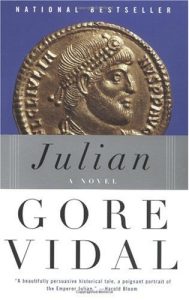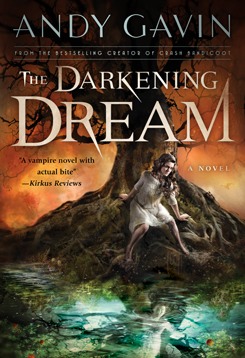 Title: Julian
Title: Julian
Author: Gore Vidal
Genre: Historical Fiction
Length: 502 pages
Read: January 24 – March 3, 2012
Summary: Impressive portrait of a complex man and time
This excellent novel was a bestseller in the 1960s and that in of itself is a sad testament to the intellectual decline of the American reader. Its subject, a novelized biography of the fourth century Roman Emperor Julian, is one that would have today’s Harry Potter, Twilight, and Da Vinci Code reader scratching his head. You’re probably even asking yourself, who is Julian? And why should I care?
Julian was the nephew of Constantine the Great and one of history’s most peculiar figures. An intellectual, a general, a nerd, a statesman, and the last Hellenistic Roman Emperor. And most of you probably don’t know what I mean by this. Known as The Apostate he fought a brief and probably hopeless rearguard action against the church’s infiltration of the western mind. His world, described by Vidal with sensitivity and detail, is the final phase of antiquity. A world in transition. The cosmopolitan and immensely polyglot empire of the Romans was turning a corner, stagnating, ossifying, shrinking, transforming itself into the dark ages of the second half of the first millennium.
With this book Vidal pulls off a bit of a magic trick. He makes a gripping and compelling read out of a story that is dominated by esoteric theological argument — and does so without unnecessarily burdening the narrative. It feels very natural and in period. But that is no easy task because this is such a complex period and so unknown to the typical reader. This isn’t the Rome of Gladiator — although similarities linger — but one where Milan and Constantinople are capitals and gladatorial contests have given way to squabbles amongst Bishops. We get a clear sense of the often accidental nature of power and the importance of luck in history, both good and bad. But most importantly Julian himself feels human, even modern, as do the pair of scholar-friends who co-write his narrative. As distant as this time and place is, we are reminded that people haven’t changed. And so the sad hopelessness of Julian’s quest to save Western culture from the grasping fingers of the church feels all the more poignant!



